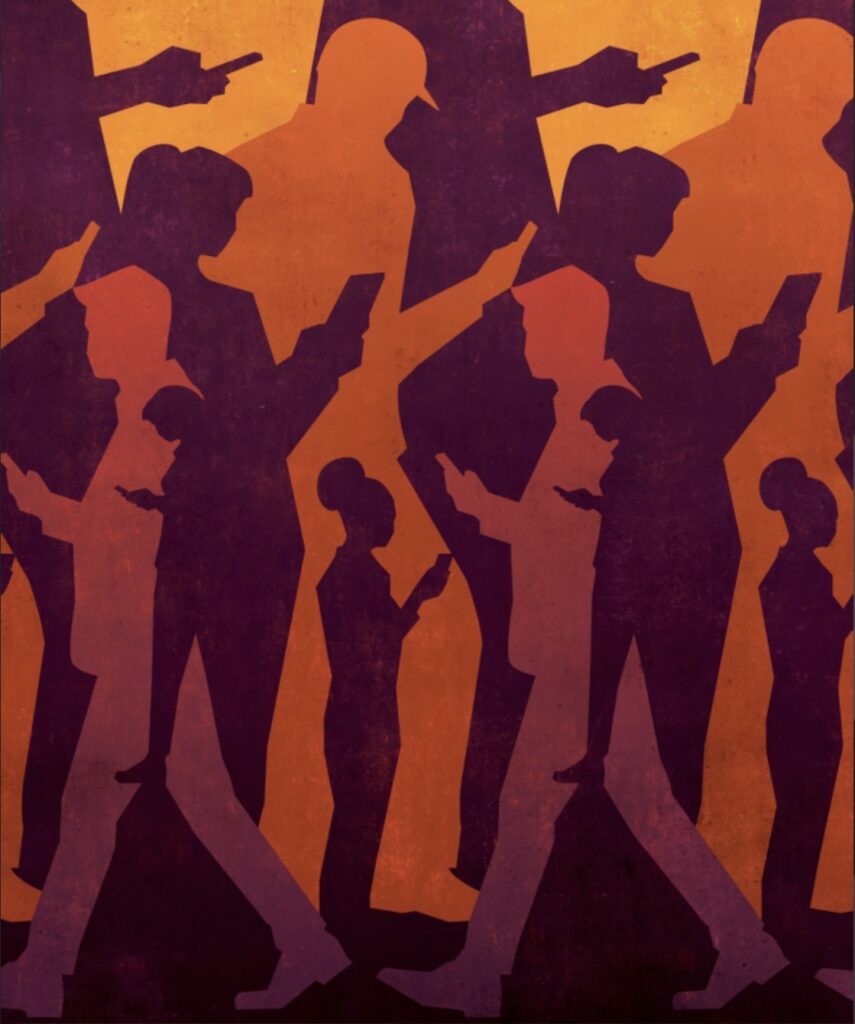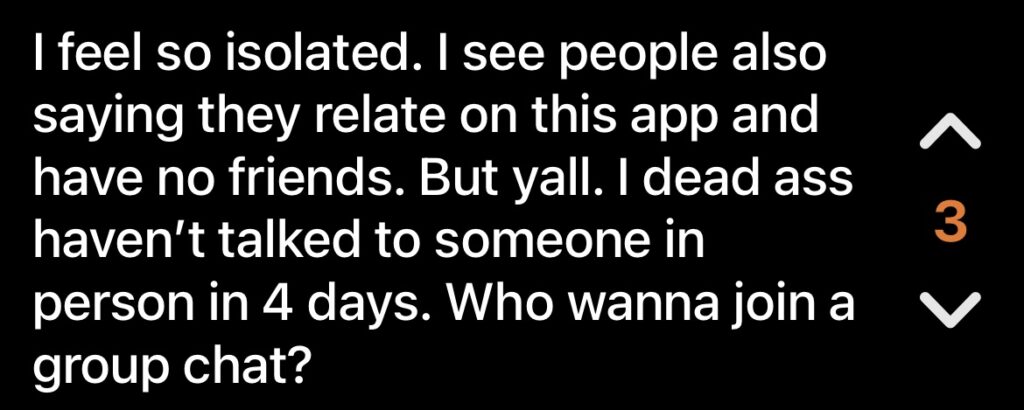
In the age of social media, college students are constantly navigating campus life all while staying connected with fellow students. Instagram, X, and TikTok are all great ways to connect with others. These virtual realms of likes, comments, and follows seem to make the world go round, but what happens when students turn to social media rather than engage in real-time college culture? It raises the question of whether social media promotes genuine connections or instead breeds student isolation.
The use of social media on college campuses could be described as a virtual hub where students can share experiences, build connections, and stay informed about on-campus events. However, some would argue that excessive use of these internet platforms could potentially result in a sense of disconnect and isolation from students’ current physical environment.
According to ProfileTree, roughly 87% of institutions use social media to announce campus news and events, while Gitnux reports that approximately 98% of college students use social media.
Kinnedi Bonner, a fourth-year journalism student and FAMU orientation leader, says that there are pros and cons when it comes to social media.
“It’s a great way to stay connected with people, but it can also take away the beauty of in-person interaction,” Bonner said. “You’ll be talking to someone behind a screen and then you meet them in person and realize that y’all don’t have anything in common or it’s no longer genuine.”
Colleges aim to increase student interactions by hosting various events around campus, but student consistency with in-person engagement doesn’t seem to last long.
“A change I’ve seen at social events is that students will start off interacting face-to-face but within the next hour they are glued to their phones,” Bonner said.
Tianna Fannell, a fourth-year public relations major, shared her perspective of FAMU’s college culture and student involvement compared to the neighboring school Florida State University.
“When I visited, the campus was so alive, even on the weekends. There were people playing frisbee, relaxing on hammocks, studying outside, and more. It gave off a real college vibe,” Fannell said. “At FAMU, the social media portrayal of college doesn’t match reality. I expected a vibrant atmosphere like in 90s movies with people hanging out and enjoying campus life together, but it’s not like that. Instead, it feels like community college. The campus lacks communal spaces for these activities. Unlike FSU, FAMU doesn’t have that lively college atmosphere, although I think we could change that.”
According to Flager College Gargoyle, it is believed that more students find it easier to use social media to communicate with one another instead of face-to-face. Although social media usage throughout campus has proven itself to aim to promote some connections between students on campus, the events to form these relationships do not always appeal to all students.
“At FAMU, I feel the social media promotion focuses more on party culture, branding it as a party school. Outside of that, there’s not much campus life after 6 p.m.,” Fannell said. “It’s not beneficial for those who don’t party, making it hard to connect since people at parties often just stand around without really interacting.”
A newly developed social app that is widely used around universities is Fizz. According to TechCrunch, this platform was developed to provide college students with a safe and private space to connect with others on campus and anonymously share experiences. Of the many thoughts shared on the app, a common topic emphasized among FAMU students is feelings of loneliness. Many students want meaningful connections with others but resort to building those desired relationships anonymously online rather than engaging and building them in person.

According to Regis College, substituting social media for in-person interactions could cause an increase in social isolation. A study reported that 19-32-year-olds presented a strong association between increased social media usage and perceived social isolation, whereas other studies have revealed that many online users have been unsuccessful in turning online interactions into “real” social relationships.
Nadia Buggs, a fourth-year actuarial science student and resident assistant, said that she believes social media contributes to feelings of disconnection and isolation in students.
“It’s caused people to not live in the present or talk to strangers. Everyone watches each other lives without engaging with one another. With most of my social media mutuals, I’ve never had the opportunity or the comfortability to grow an in-person relationship with them,” Buggs said. “It requires more effort outside of the social media realm to meet people and make friends. Healthy social interaction requires intentionality, reciprocation, and openness.”
Making connections in college can be hard, especially in a world that revolves around social media. By putting down the phone, stepping out of the dorm room and your comfort zone, the possibilities are endless to create genuine connections and engage in true college culture. It’s what the experience is all about.